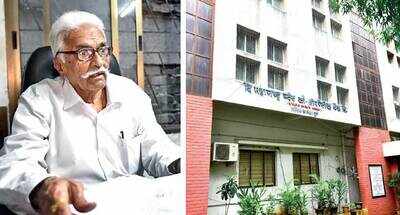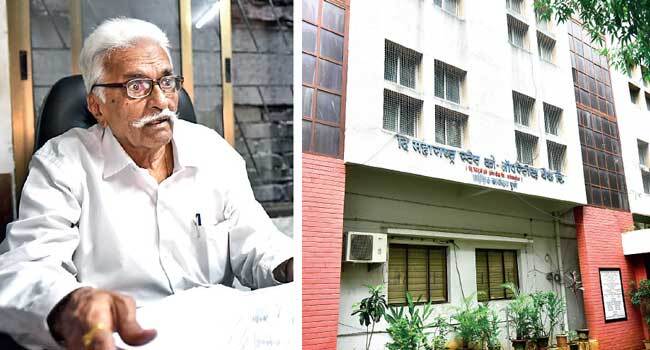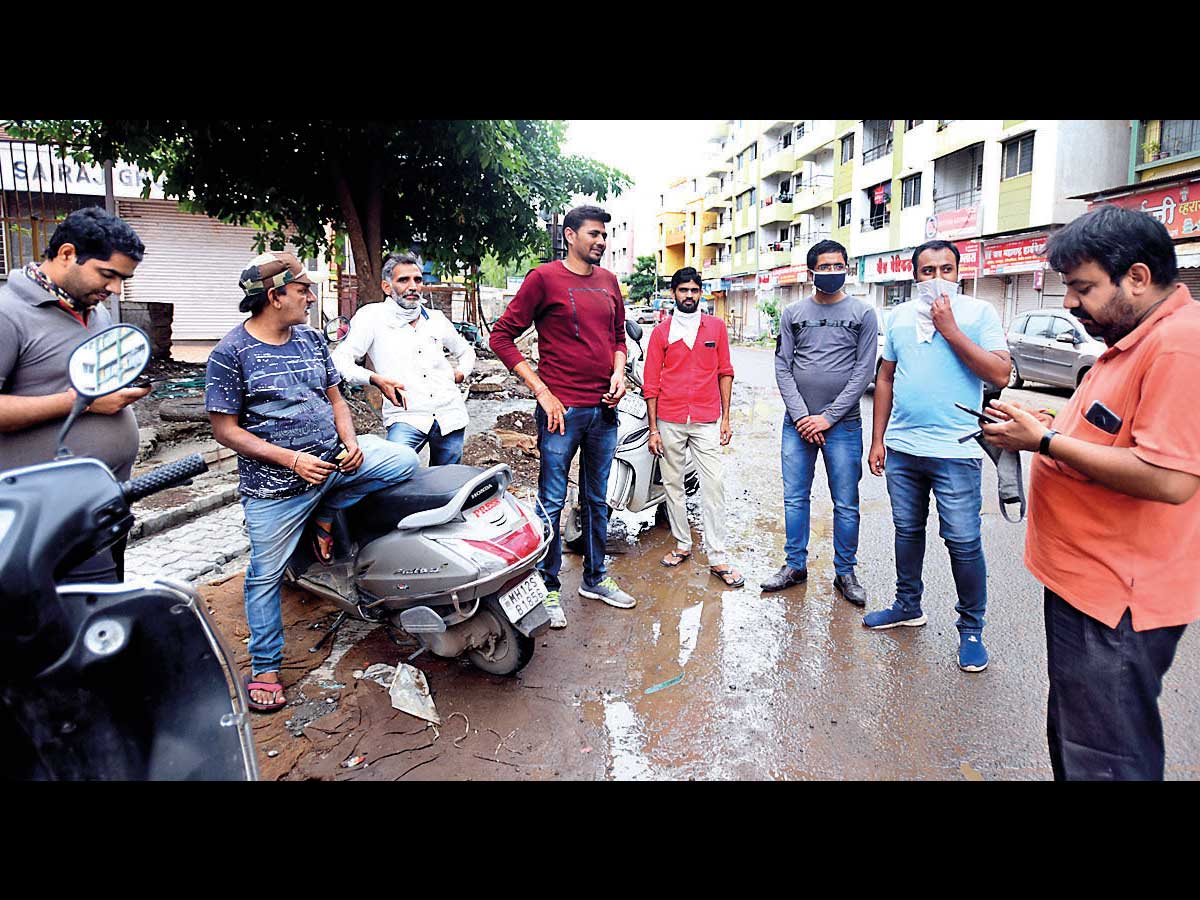Jadhavgadh’s former prince wins his duel with MSC Bank

Pune court awarded ex-freedom fighter and octogenarian Rs 1crore as compensation in sugar factory auction case
Thisfreedom fighter still had the fight left in him. The octogenarian took on the apex entity — Maharashtra State Cooperative Bank Ltd (MSC Bank ) — when he found himself cornered in a bad deal after he bid for a sugar factory in 2013. He took the bank to court and six years later (earlier this month) he walked away not just with a refund plus interest, but also a compensation of Rs 1 crore towards damages. He managed to convince the Pune court that the bank had not been transparent with him about the property he was acquiring, forcing him toapply brakes on the deal.
Amarsinh Jotyajirao Jadhavrao, who had participated in the Indian freedom struggle and has also been jailed during Goa’s annexation to India, from Portuguese holdings in the sub-continent, had bid forNagar Taluka Sahakari Sakhar Karkhana in Ahmednagar district. He paid over Rs 5.7 crore as earnest money to bid for the sugar factory put on auction by MSC Bank. However, a few weeks later, he realised something was amiss and held back on paying the entire Rs 42 crore he had bid for the acquisition.
In 2014, he moved court seeking the refund of the earnest money he had deposited along with an interest of 18 per cent. He also sought compensation for damages. A member of the royal family of Jadhavgadh, he was all set to take the legal battle to its logical end.
Jadhavrao’s contention was that though he won the bid, as he was the only one participating in the auction, the bank did not come clean on the plant’s liabilities. Within a few days of winning the bid, he got to know about alitigation involving the sugar factory, pending in Ahmednagar court. He sought details about the case from the bank before proceeding with further payments for the acquisition. He told the court that the bank never reverted on his request.

Instead, the bank went ahead and sold the factory for Rs 36 crore to another party in September 2014. He argued it was binding on the bank to give him all the necessary information about the property he was to purchase, which the financial institution did not comply with. This forced him to withhold any further payments to the bank. On these grounds, he stated that bank should not only pay him back the earnest money deposited with interest, but also compensate him for all the trouble he went through.
For its part, the bank defended that it was Jadhavrao’s duty to do due diligence before bidding for the plant. Its representatives pointed out that he was expected to pay the entire consideration of Rs 42 crore for the sugar factory within 30 days of winning the bid. As he defaulted on doing so, he forfeited the earnest money deposited, they countered.
Pursuant to the hearing, the civil court observed that the bank had not been able to establish default on Jadhavrao’s part. Joint civil judge VM Karhadkar agreed that it was the bank’s responsibility to be transparent about the property and all the litigations it was mired in. “The case in hand does not show the defendants (bank) providing necessary information so as to continue with transparent business. In that scenario, expecting the plaintiff (Jadhavrao) to continue with further payment would amount to acting againstnatural justice [sic],” he noted.
Making these observations, he ruled that Jadhavrao should be paid back the earnest money along the with 18 per cent interest as he demanded, as well as be awarded Rs 1crore as damages. Clearly relieved, Jadhavrao told Mirror, “It was a six-year legal battle. Since big political families were involved in the deal, I was under tremendous pressure from different corners. However, being a freedom fighter, I never gave up. I stuck to principles and fought the case with sincerity. Finally, the truth prevailed.”
This
Amarsinh Jotyajirao Jadhavrao, who had participated in the Indian freedom struggle and has also been jailed during Goa’s annexation to India, from Portuguese holdings in the sub-continent, had bid for
In 2014, he moved court seeking the refund of the earnest money he had deposited along with an interest of 18 per cent. He also sought compensation for damages. A member of the royal family of Jadhavgadh, he was all set to take the legal battle to its logical end.
Jadhavrao’s contention was that though he won the bid, as he was the only one participating in the auction, the bank did not come clean on the plant’s liabilities. Within a few days of winning the bid, he got to know about alitigation involving the sugar factory, pending in Ahmednagar court. He sought details about the case from the bank before proceeding with further payments for the acquisition. He told the court that the bank never reverted on his request.

Jadhavrao (L) in 2013 bid for Nagar Taluka Sahakari Sakhar Karkhana in Ahmednagar, auctioned off by MSC Bank (R); he later said the bank withheld the plant’s liabilities; PIC: RAHUL DESHMUKH
Instead, the bank went ahead and sold the factory for Rs 36 crore to another party in September 2014. He argued it was binding on the bank to give him all the necessary information about the property he was to purchase, which the financial institution did not comply with. This forced him to withhold any further payments to the bank. On these grounds, he stated that bank should not only pay him back the earnest money deposited with interest, but also compensate him for all the trouble he went through.
For its part, the bank defended that it was Jadhavrao’s duty to do due diligence before bidding for the plant. Its representatives pointed out that he was expected to pay the entire consideration of Rs 42 crore for the sugar factory within 30 days of winning the bid. As he defaulted on doing so, he forfeited the earnest money deposited, they countered.
Pursuant to the hearing, the civil court observed that the bank had not been able to establish default on Jadhavrao’s part. Joint civil judge VM Karhadkar agreed that it was the bank’s responsibility to be transparent about the property and all the litigations it was mired in. “The case in hand does not show the defendants (bank) providing necessary information so as to continue with transparent business. In that scenario, expecting the plaintiff (Jadhavrao) to continue with further payment would amount to acting against
Making these observations, he ruled that Jadhavrao should be paid back the earnest money along the with 18 per cent interest as he demanded, as well as be awarded Rs 1crore as damages. Clearly relieved, Jadhavrao told Mirror, “It was a six-year legal battle. Since big political families were involved in the deal, I was under tremendous pressure from different corners. However, being a freedom fighter, I never gave up. I stuck to principles and fought the case with sincerity. Finally, the truth prevailed.”
GALLERIES View more photos












































Recent Messages ()
Please rate before posting your Review
SIGN IN WITH
Refrain from posting comments that are obscene, defamatory or inflammatory, and do not indulge in personal attacks, name calling or inciting hatred against any community. Help us delete comments that do not follow these guidelines by marking them offensive. Let's work together to keep the conversation civil.